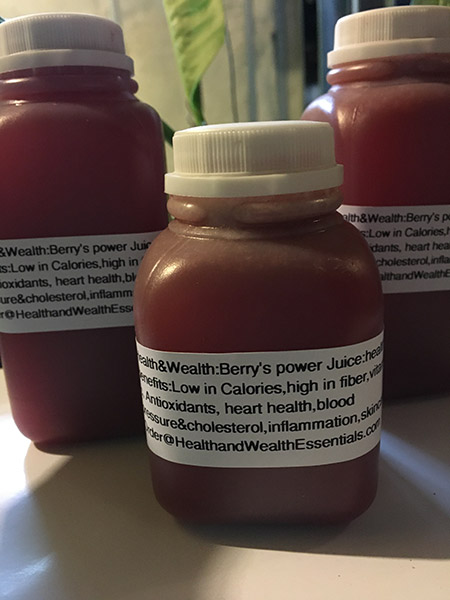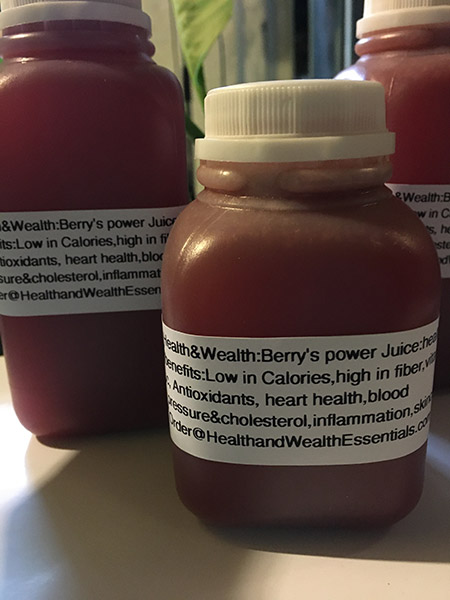Description
Berries Keep You Mentally Sharp, Thanks to Anthocyanidins
Women who eat about two servings of strawberries or one serving of blueberries a week experienced less mental decline over time than peers who went without these nutrition powerhouses, according to research published in the Annals of Neurology. In the study, researchers reviewed data from 16,010 women over age 70. Those with the highest berry intake postponed cognitive decline by about two and a half years. “We think that the effect might be related to a class of compounds called anthocyanidins, which is a type of flavonoid,” explains study author Elizabeth Devore, a doctor of science, associate epidemiologist at Brigham and Women’s Hospital in Boston, and an instructor in medicine at Harvard Medical School, also in Boston. “These compounds, found almost exclusively in berries, are known to cross the blood-brain barrier and locate in learning and memory centers in the brain.”
To Prevent or Manage Diabetes, Berries Are a Great Choice
Berries are sweet but not the kind of sweet that should send people with diabetes running. “Because they come with fiber, people with diabetes can include that in their diet as a serving of fruit,” says registered dietitian Nancy Copperman, RD, a nutrition consultant in community health in Georgetown, Texas. When it comes to berries, raspberries are one of the best options because they are packed with fiber. Raspberries contain 15 grams (g) of carbohydrates and 8 g of fiber per cup, according to the U.S. Department of Agriculture (USDA).
Another stellar choice: blackberries. These berries have 14 g of carbs and 8 g of fiber per cup, per the USDA. Opt for fresh fruit, as juice is stripped of fiber, and plan on eating berries on their own or when added to another nutritious food (like oatmeal), rather than in, say, a carb-rich muffin.
When it comes to diabetes prevention, berries will fit in your healthy diet, too. In fact, a study published in April 2017 in PLOS Medicine found that, of about 500,000 Chinese adults, those who consumed fresh fruit daily were 12 percent less likely to develop diabetes compared with those who avoided it. Fruits that are lower on the glycemic index, which includes berries, might be the best options for blood sugar regulation, the researchers point out. In general, when enjoyed whole, these foods carry a low glycemic load, meaning they are unlikely to cause sharp swings in blood sugar levels.
Berries Might Prevent Parkinson’s Disease Due to Their Flavonoid Content
People who eat at least two servings of berries a week have a 23 percent less chance of developing Parkinson’s disease than their peers, according to research published in Neurology. The same study showed that men with the highest intake of flavonoids, which are abundant in berries, reduced their risk by 40 percent. Besides eating them plain, you can also get your berry servings by adding them fresh or frozen to other high-nutrition foods such as yogurt and salads.
Reduce Inflammation and Prevent Heart Disease With Berries
Berries are high in flavonoids, antioxidant plant compounds that are associated with lower odds of developing heart disease, making them one of the American Heart Association’s superfoods. (They’re in the same category as salmon, oats, dark leafy greens, and nuts and seeds.) Indeed, according to the organization, berries may help lower the risk of heart attack in women. What’s more, consuming berries helped decrease LDL (“bad”) cholesterol levels and reduced systolic blood pressure, body mass index, and measures of blood sugar, according to a meta-analysis of 22 randomized, controlled trials that was published in March 2016 in Scientific Reports.
The antioxidants in berries “promote healthy cell function and protect against inflammation,” says Binder-McAsey. She explains that underlying inflammation is a driver of disease, including heart disease and type 2 diabetes (which doubles the odds of developing heart disease). Beyond berries, include as many different-colored fruits and veggies in your diet as possible.
Berries May Help You Maintain or Lose Weight
Because of their fiber and liquid content, berries give us a sense of fullness, Copperman says, and feeling sated is an important part of managing your diet. Berries are low in calories, too, making them a diet-friendly choice. In 1 cup, raspberries have 64 calories, blackberries have 65 calories, blueberrieshave 86 calories, and strawberries have 48 calories, per the USDA. Even if you’re on a very low-carbohydrate diet, like the ketogenic diet, you may be able to include fruits like berries in small amounts. For example, 10 raspberries have 2.3 g of carbs and 1.2 g of fiber.
Interestingly, there may be something more going on when it comes to weight loss. In a study published in August 2018 in Nutrients, overweight and obese men in a small randomized, controlled trial who ate a high-fat diet along with just under an ounce of blackberries per day for a week burned more fat and had improved insulin sensitivity compared with the control group.
Let kitchen creativity lead you to experimenting with berries in nutrition-rich recipes such as fresh fruit sauces and salad dressings, pair them with almonds for a fast snack, or eat them plain. “Emulsify them and make them part of a fruit vinaigrette rather than using a lot of oil,” Copperman suggests.
Lower Blood Pressure by Boosting Blood Vessel Function With Berries
There’s some delicious news in your quest to control blood pressure: Anthocyanins in blueberries circulate in your bloodstream where they can improve blood vessel function, finds a study published in February 2019 in The Journals of Gastroenterology: Series A. Scientists discovered that eating just over 1 cup of wild blueberries every day for a month improved blood vessel dilation, in turn lowering systolic blood pressure. (A control drink had no effect.)
“The blood pressure benefit goes back to the antioxidant properties they all share and also your genetic predisposition,” Copperman says, pointing out that a berry-rich diet may be particularly helpful for people whose family history is loaded with heart disease risk (high blood pressure itself is a heart disease risk factor). The chemical compounds in berries fight the systemic inflammation that may accompany high blood pressure, helping to make your body healthier overall.
Help Fight Cancer by Adding Berries to Your Diet
Flavonoid-packed berries, such as blueberries and raspberries, are an important part of a cancer-prevention diet. Berries have been shown to help protect against gastrointestinal, breast, and possibly even liver, prostate, pancreatic, and lung cancers, points out a review published in October 2016 in Antioxidants. That may be because compounds like anthocyanins and flavonoids may help reduce inflammation, protect cells from DNA damage that leads to cancer, and stop the spread of malignant cells.
Because cancer prevention diets generally emphasize fruits and vegetables, including berries certainly won’t hurt. Again, Copperman stresses, any cancer-preventing benefit is enhanced by the inclusion of many different colors of fruits and veggies.
Eat Prebiotic-Rich Berries for a Healthy Gut
Probiotics may be important to keep your microbiome (the collection of microbes in your gut) healthy, but prebiotics matter, too. “Berries are not probiotics, but they are prebiotic-rich foods. These are fiber-rich foods that provide fuel to the probiotics in the gut,” says Binder-McAsey. A healthy microbiome plays an essential role in the immune system and protects against pathogens that could make you sick, per the Harvard T.H. Chan School of Public Health. What’s more, this fiber promotes regular bowel movements, she says.












Reviews
There are no reviews yet.